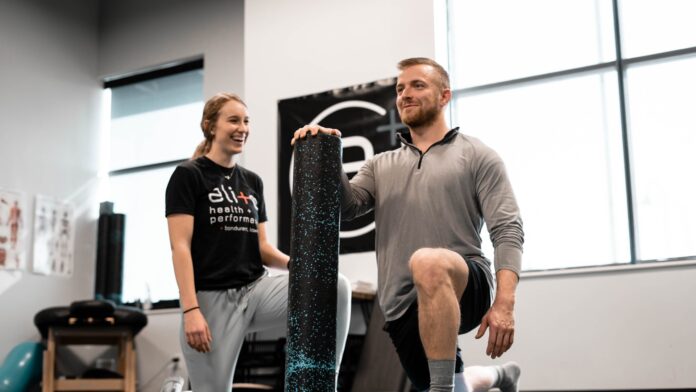A physical injury is difficult to manage and it can also be an emotional roller coaster. Your loved ones who go through physical therapy will require your assistance and support. It’ll be difficult but you must give your all to support them. Physical therapy is critical for them and your presence can encourage them to continue to improve and make it a lot easier for them.
This article will go over some of the ways on how you can assist someone who’s going through physical therapy. To provide adequate support, you must first understand why physical therapy is required.
Why Your Loved One Needs Physical Therapy

Physical therapy aids people of all ages in healing from an injury and regaining their functional abilities. Here are some of the reasons why physical therapy is required:
- Reduce or eliminate pain- Therapeutic exercises can help to reduce or eliminate pain by restoring muscle or joint function. Some may also be able to permanently alleviate the pain.
- Avoid surgery- Physical therapy can help restore mobility and function of joints or an injured part of the body and can even help you avoid surgery. However, if surgery still needs to happen, then physical therapy can help prepare them for the procedure as well as help them recover quickly after surgery has been done.
- Improve your ability- It can help those who have trouble moving, standing, or walking. Stretching and strengthening the muscles through exercises can assist in regaining the ability to move, walk, or stand.
- Recovering from a stroke- Since some of the stroke patients lose their ability to do many things, such as moving around, physical therapy can help them improve the affected body parts to regain their strength and balance.
- Recover from injury- It can assist in recovering from a variety of injuries. There are various types of exercises that are tailored for each injury. The therapy will then be focused on the specific part that was injured.
Physical therapy exercises use different equipment to help in improving mobility, relieving pain, and the healing process. To know more about the equipment, you can check PrePak products and look for equipment that will help your loved one.
Here are six ways on how you can support someone who’s going through physical therapy.
1. Be Patient With The Recovery Process

You must be patient because physical treatment has ups and downs, which are entirely natural. When you don’t notice any progress, don’t push too hard because this may cause injury or even hinder the healing process. What counts is that there are signs of development, but don’t hold your breath for it to continue. Being patient and encouraging to your loved ones will help them believe that no matter what happens, they’ll recover.
2. Set Realistic Goals For Them
It’s unrealistic to expect a miracle in a single day. Set goals for them based on their abilities before the injury. Take it one step at a time and don’t overdo it. For example, if they walked 50 steps today, add a few more steps tomorrow.
Allow them to use walker, cane, or crutches. For example, you could let them start using a walker. As their strength improves, you can let them use crutches. You can remove one when you believe they’ll be able to move with only one. They can now walk on their own, albeit only for a few steps at first.
3. Celebrate Small Victory

Cheer them on no matter how small the improvement is. It could be a few minutes of standing alone or taking a few small steps that are worth celebrating. Make it a habit to congratulate them on their accomplishments.
You can teach them a few pain-relieving techniques they can do on their own, such as self-massage, and cheer them when they say they were able to do it on their own. When they achieve a goal or advance to the next stage, give them hugs, kisses, and even take them out to a diner. Celebrating every achievement will motivate them.
4. Be Understanding
Therapy is difficult for patients so they may be tempted to give up. When this time comes, you should be more patient and understanding of them. They appear enthusiastic and engaged in their exercises one day, and then it’s a different story the next. Don’t give up on them. Instead, find ways to motivate them, and take time to listen to them
They’re dealing with both physical and emotional issues, so it would be fantastic if you could relate to them and provide all of the support they require.
5. Provide Emotional Support

Often, people give up on various forms of rehabilitation, including physical therapy. Taking a toll on their emotional balance in one way. Even though physical therapy is about the physical aspects of the recovery, it must also come with some emotional support. You have to understand your loved ones and their circumstances and let them guide you on how you’re supposed to provide care for them.
Consider a scenario where a breadwinner was providing for their family but couldn’t do so because of an injury; this person will likely be emotionally affected and feel discouraged. Therefore, to support them, you should reassure them that everything is under control and not crumbling because they aren’t taking care of everything. A good idea to help provide this emotional peace is to ensure that things aren’t crumbling while they’re recovering. Take time to listen to their frustrations.
However, if you think you don’t have the emotional muscle to provide this kind of support, then you might need to consider having them see a psychotherapist who’ll help them navigate their feelings, no matter what they are!
6. Help But Not Too Much
You want to help them as much as possible, but you also don’t want to overburden them. Don’t go out of your way to assist them because it could backfire. Doing everything for them will either pique their interest or turn them into slackers. It’s best to help without doing much. For example, you could simply guide them through tasks and help them when they ask for it or when you notice they’re in desperate need.
It’s also a good idea to think about how you can assist your loved ones in achieving good results without pushing them too hard because you might unintentionally do so. Instead of being too hard on them, encourage and reassure them that they can succeed.
Conclusion
This article has taught you why people require your assistance when undergoing physical therapy and how you can support them. Now that you know what to do, it won’t be difficult for you to help someone who needs it. Supporting your loved ones during a difficult time can even hasten their recovery. It’s best to refer back to this article if you’re unsure about something






